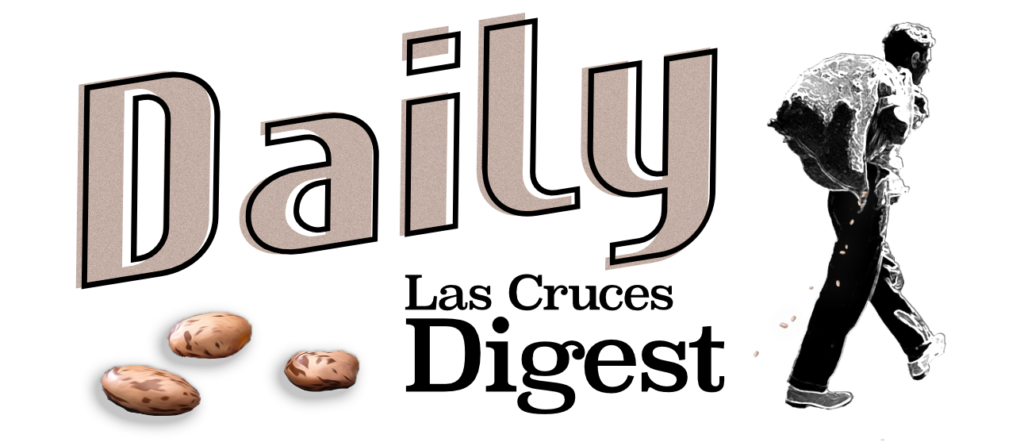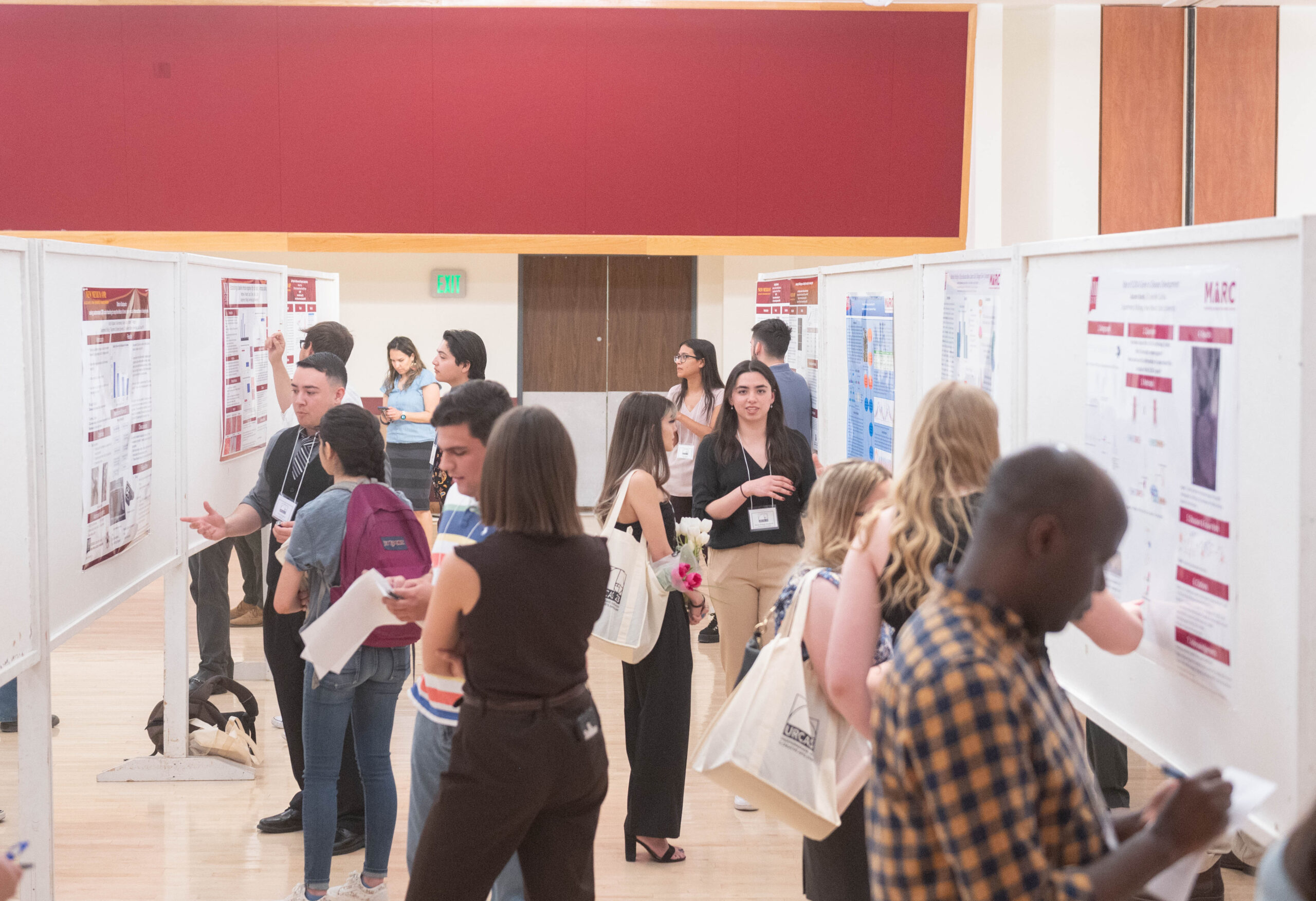New Mexico State University students participating in NMSU’s 2023 Undergraduate Research and Creative Arts Symposium. (NMSU photo by Josh Bachman)
Source: NMSU News Release
A $1.6 million grant from the National Institutes of Health will fund training for undergraduate researchers at New Mexico State University over the next five years. The award, under the NIH National Institute of General Medical Sciences, will support NMSU’s Undergraduate Research Initiative for Scientific Enhancement (U-RISE) Program.
The program promotes broad participation in the biomedical research workforce by strengthening research training environments and expanding the pool of well-trained students who complete their baccalaureate degree, and transition into and complete biomedical, research-focused higher degree programs such as Ph.D. or M.D./Ph.D.
“The mission is to recruit students from underrepresented communities, students who have been historically marginalized from joining biomedical research,” said Graciela Unguez, NMSU Regents professor in biology and principal investigator for the project. “Our goal is to train them, support them and prepare them to move on to graduate work in the biomedical and bio-behavioral sciences.”
NMSU U-RISE seeks to create science communities that are intentional and specific in developing equitable, inclusive, and diverse scientific environments fostered to welcome and support different perspectives.
The program plans to train 45 undergraduate scholars over the next five years through a two-year research education program bolstered by an inclusive and affirming honors seminar series built into students’ curriculum and a summer internship at a research-intensive institution. Complementary activities are focused on knowledge, skills and confidence building in four major areas: basic research skills, quantitative-based approach to analyze and solve problems, scientific communication skills and development of a science identity.
“There’s a lot of talk about diversity, equity and inclusion, but there’s a difference between talking about it and practicing it,” said Merranda Marin, co-principal investigator and assistant professor in the Department of Family and Consumer Sciences. “What we want to do is make sure that we’re reaching out across New Mexico and really tapping into the talent here and sharing what is available with our students.”
Marin and Unguez explain that NMSU U-RISE will blend training in critical thinking and laboratory skills with support in relevant professional proficiencies coupled with intentional community building among scholars from diverse cultural and academic backgrounds with scientifically trained faculty mentors and staff.
“Because I’m housed in the College of ACES, I’m looking to bring a wider perspective to what is meant by biomedical fields,” Marin said. “There are a lot of agriculturally related fields that are biomedical. We want to expand on that definition for undergraduate students, particularly those who come from underrepresented groups. We want to create space for them to maximize their understanding of research and their place in it and maybe put them on a pathway towards a career in the biomedical field which they may not have considered in the past.”
Unguez is confident their innovative approach with U-RISE will gain traction because of the university’s support and its long track record of success with other undergraduate research training programs funded by the NIH. This U-RISE Program succeeds former versions that existed at NMSU as the NIH Minority Biomedical Research Support (MBRS) RISE led by professor Marvin Bernstein from 2000 to 2006, then Regents professor Elba Serrano from 2007 to 2012.
Another long-standing NIH-funded training program is NMSU’s Maximizing Access to Research Careers (MARC) founded in 1977 and led by professor Glenn Kuehn through 1997, then succeeded by professor Michael Johnson as director of the program from 1997 to 2020 and by Unguez from 2020 to 2023.
“We have to recruit our first cohort to start this summer,” Unguez said. “We want students to understand there are many ways to do research that is relevant to biomedical sciences. The biomedical sciences are a combination of disciplines that are used to develop treatments, technology and inventions that will benefit public health. Hence, students from practically any major can learn and contribute to advancing the biomedical fields. Our goal is to increase the diversity of trainees from all the fields through the U-RISE Program.”






